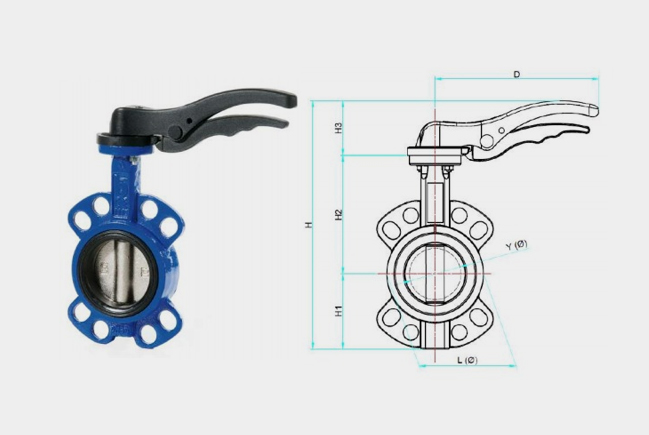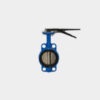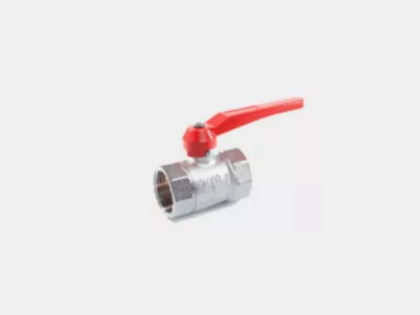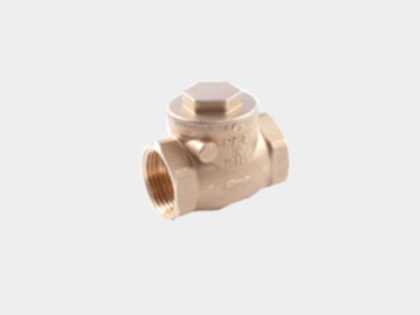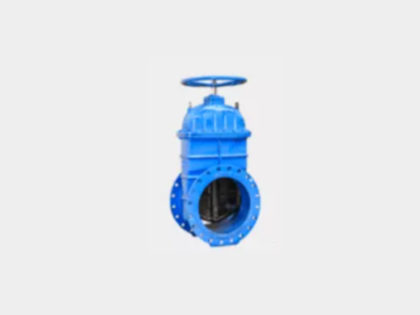STORING
Keep in a dry and closed environment.
While stored, the valve must be fully open to avoid any damage to the seats
MAINTENANCE
The valve does not require maintenance
RECOMMENDATIONS
Before carrying out maintenance, or dismantling the valve, be sure that the pipes, valves and liquids have
cooled down, that the pressure has decreased and that the lines and pipes have been drained in case of
toxic, corrosive, inflammable or caustic liquids.
Temperatures above 50°C and below 0°C might cause damage to people.
INSTALLATION
- Handle with care. Do not weld the flanges to the piping after installing the valve.
- Water hammers might cause damage and ruptures. Inclination, twisting and misalignments of the piping
may subject the valve to stress, once installed. It is recommended that elastic joints be used in order to
reduce these effects as much as possible. The disc must be partially open. The stem has a machined
notch which indicates the position of the disc; consider this indication, in order to mount the levers and
actuators correctly. The mounting can be made with the stem axis in a horizontal or vertical position. In
case the fluid contains suspended solid particles (for example, sand, impurities, etc.) o solid particles that
may leave deposits, it is recommend that the valve be installed with its axis horizontal, and in such a way
that the bottom end of the disc opens in the direction of flow. - This item allows the dismantling of the pipes downstream, for pressures below 6 bar.
- Verify maximum working pressure and limits of use. Place the valve between two flanges. While placing
the valve, ensure there is sufficient space in order not to damage the rubber. Do not mount seals
between valve and flanges. - Carefully clean the contact surface. Do not install the butterfly valve in direct contact with a rubber
surface (for example, expansion joints); the best installation is when the rubber is in contact with metal.
Do not weld the flanges to the tube if the valve has already been installed. - Do not let protrusions or sharp edges on the piping cause damage to the rubber surface of the valve.
Centre the valve on holes while using wafer type valves. Tighten the bolts crosswise and progressively,
in order to distribute the pressure equally before the body and flanges come into contact with each
other - Turbulences of the fluid might increase erosion and reduce the life-cycle of the valve. Install the valve at
a distance of at least 1 x DN upstream, and at a distance of 2-3 x DN downstream, away from fittings or
bends. In the open position, the valve is larger than the nominal Face to Face value. Check that no other
components of the piping interfere or create damage or malfunction. If they do, a spacer should be
inserted for the valve to operate correctly.
DISPOSAL
For valve operating with hazardous liquids(toxic, corrosive…) , if there is a possibility of residue remaining in
the valve, take due safety precaution and carry out required cleaning operation. Personnel in charge must
be trained and equipped with appropriate protection devices.
Prior to disposal, disassemble the valve and separate the component according to various materials.
Please refer to product literature for more information. Forward sorted material to recycling (e.g. metallic
materials) or dispose it, according to local and currently valid legislation taking into consideration the environment.
BODY DISC
Ductile iron GG50 Stainless steel INOX AISI 316
STEM O-RING
Stainless steel INOX AISI 304 EPDM
SLIDING RING FINISHING
EPDM Light blue epoxydic coating
BUSHING LEVER
PTFE Aluminum with black epoxydic, coating finishing



